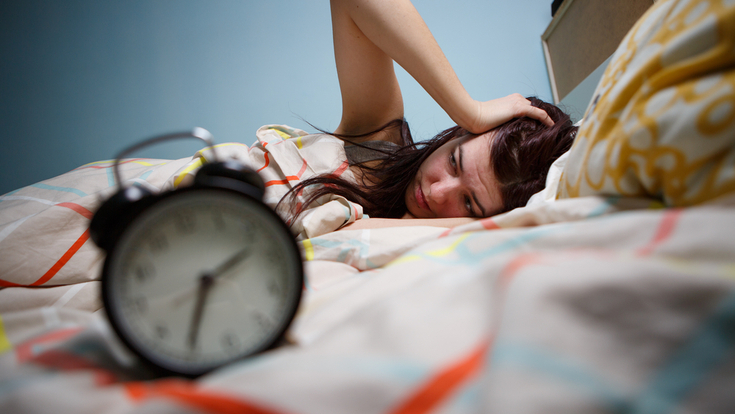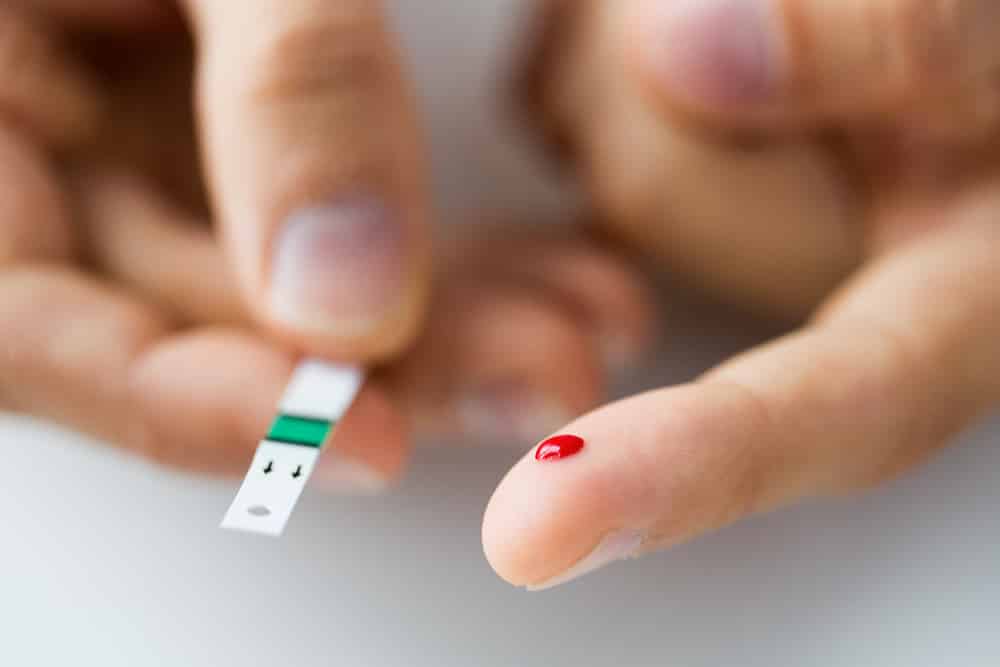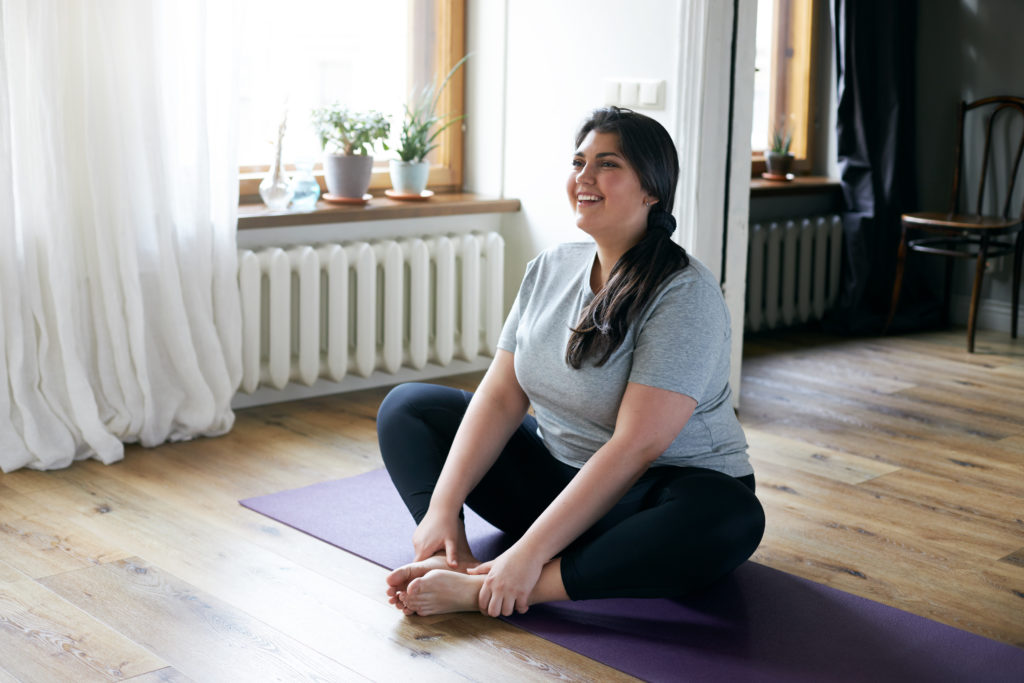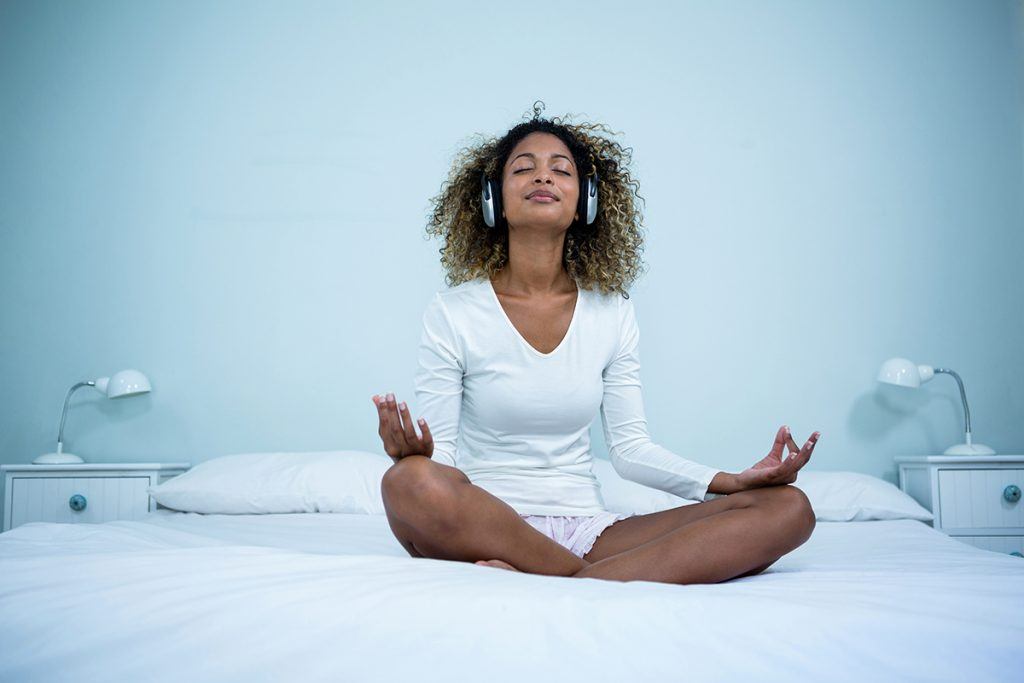Chances are you’ve eaten a sugary snack before bed and found yourself struggling to sleep at some point in your life. You may have even experienced sleep disturbances like nightmares, night sweats or snoring.
That’s because blood sugar and sleep are closely linked, and your blood sugar levels naturally surge while you’re sleeping. This typically occurs around 4-8 a.m. if you follow a normal sleep schedule. However, blood sugar that’s too low or too high can negatively impact your sleep, and sleeping too much or too little can affect blood sugar in return.
Still, it’s not just the act of consuming sugar that can make blood sugar levels spike or drop. Stress, pain, medications and even dehydration can all send your blood sugar on a rollercoaster, which is why it’s so important to take steps to regulate your blood sugar.
Here’s everything you should know about the connection between blood sugar and sleep, how to manage your blood sugar and signs that it may be time to seek out the help of a healthcare professional if blood sugar is affecting your sleep.

The Importance of Sleep
Like diet and exercise, sleep is a critical component of overall health. According to Dr. Michael Twery, a sleep expert at the National Institutes of Health, “Sleep affects almost every tissue in our bodies. It affects growth and stress hormones, our immune system, appetite, breathing, blood pressure and cardiovascular health.”
Sleep deficiency, or not getting enough sleep, is linked to numerous chronic health problems. These include heart disease, kidney disease, high blood pressure, diabetes, stroke and more. If you notice that you feel run down after bouts of sleeplessness or you’re more prone to getting sick, that’s sleep’s impact on immune function.
Good quality sleep is also essential for your mental health. Poor sleep can contribute to depression, anxiety and overall mental distress. That’s why making sleep a priority—and understanding what affects sleep, including blood sugar—are crucial to your wellbeing.
Can Blood Sugar Affect Sleep?
While it may come as a surprise, blood sugar can have a substantial impact on your sleep. Researchers are still trying to understand how exactly sugar affects sleep, but here’s what we know so far based on existing studies and research.
High Blood Sugar
A 2015 study of 63 patients with type 2 diabetes found that individuals in the group with higher blood sugar levels experienced poorer sleep. Yet it’s not just those diagnosed with type 2 diabetes that saw worsened sleep due to high blood sugar.
A second study in 2019 discovered that 62% of people with blood sugar levels in the pre-diabetes range were prone to worsened sleep, compared to 46% of people with normal blood sugar levels. More research is needed to fully understand the link.
Signs of high blood sugar, or hyperglycemia, include:
- Increased thirst and dry mouth
- Frequent urination
- Tiredness
- Blurred vision
- Unintentional weight loss
- Recurrent infections
Low Blood Sugar
The connection between low blood sugar and sleep is more known. Low blood sugar, or hypoglycemia, can cause a host of sleep problems. It can happen in people with or without diabetes, and the form that occurs at night is called nocturnal hypoglycemia.
Your blood glucose, or blood sugar levels can drop while you sleep and stay low for several hours. Sleep disturbances that may occur as a result of low blood sugar include nightmares, crying or yelling while sleeping, sweating to the point of making your pajamas or sheets damp, and feeling confused, tired or irritable upon waking up.
Nocturnal hypoglycemia can be a source of insomnia, a common sleep disorder characterized by trouble falling asleep, staying asleep or getting good quality sleep.
Severe hypoglycemia can be extremely dangerous. Be sure to speak to a doctor if you exhibit persistent signs of low blood sugar such as feeling shaky or jittery, hungry, tired, dizzy, lightheaded, your heart is beating too fast or irregularly or if you can’t see or speak clearly, as this could be a medical emergency and should be treated right away.

Diabetes & Sleep
Because diabetes types 1 and 2 are diseases that are tied to your blood sugar, it’s important to be aware that much of what we talk about in this article applies to diabetics. While poor sleep is not a direct cause of type 2 diabetes, there is a strong link between poor sleep and how it impacts your body’s ability to metabolize the glucose in your blood.
One study from Diabetes UK, a charity organization dedicated to diabetes research, has found that insomniacs are at greater risk of developing type 2 diabetes. This is because those with insomnia were found to have trouble falling or staying asleep due to a higher amount of blood sugar.
Dr. Eve Van Cauter, in an interview with the National Institute of Diabetes and Digestive and Kidney Diseases, confirms irregular sleep, sleep disturbances, or poor sleep’s link to the development of type 2 diabetes. This is because poor sleep leads to glucose intolerance, which is what causes higher blood sugar levels. Individuals who are pre-diabetic, or who are currently diabetic, will have the condition worsen due to poor sleep.
Both type 1 and type 2 diabetics have similar sleep disturbances that come as a result of higher blood sugar levels while they sleep. Obstructive sleep apnea (OSA) is prevalent in both type 1 and type 2 diabetics. Sleep duration and the quality of sleep are impacted by blood sugar levels as well, so strict management and upkeep of diabetes is key when it comes to getting better sleep.
How Does Sleep Affect Blood Sugar?
Blood sugar can affect sleep, but the quality and quantity of your sleep can also change your blood sugar for better or for worse. Sleep has a direct effect on blood sugar levels. While getting good regular shuteye can help you maintain normal blood sugar levels, poor or insufficient sleep can have a negative impact on glucose. Here’s why:
Sleep Deprivation
Time after time, research shows that too little sleep is associated with higher blood sugar levels. Not only does getting poor sleep increase your glucose levels, but it can also reduce your insulin sensitivity, which can lead to glucose build up in the blood and eventually type 2 diabetes (insulin helps control the amount of sugar in your blood).
Sleep Problems and Blood Sugar
Yet it’s not just sleep deprivation that can affect blood sugar. Common sleep problems such as sleep apnea and narcolepsy can also drive your blood sugar levels up.
A 2020 study in African Americans, who are at an increased risk for developing diabetes, found that those with severe sleep apnea had 14% higher fasting blood glucose levels compared to those without sleep apnea .
Narcolepsy is also associated with increased incidence of type 2 diabetes, pointing to a possible connection between the sleep disorder and uncontrolled blood sugar levels.
What Happens to Blood Sugar While You Sleep?
While the link between sleep and blood sugar may be alarming, it’s important to remember that your blood sugar levels naturally rise as part of your body’s circadian rhythm, or internal clock that helps you understand when it’s time to go to sleep and wake up.
As we mentioned earlier, this typically occurs between 4-8 a.m. during what’s known as the “dawn effect.” The natural increase in glucose production gives your body energy that helps you wake up.
In healthy people, insulin controls the surge and signals to your muscle, fat and liver cells to absorb the glucose from your blood, keeping your blood sugar levels stable. People who have diabetes or are at risk of developing it have higher blood sugar levels because insulin isn’t working at the optimal level.
How to Improve Blood Sugar and Sleep
There are many steps you can take to improve blood sugar levels and therefore your sleep. Getting enough shut-eye is arguably the biggest change you can make, but there are other healthy lifestyle habits that may be worth adopting.
Try these strategies to help improve blood sugar and sleep.
Importance of Exercise for Regulating Blood Sugar

Regular exercise plays a huge role in blood sugar regulation. Physical activity can lower your blood glucose for up to 24 hours or more following your workout, making you more sensitive to insulin (which is a good thing). Experts recommend at least 150 minutes per week of moderate intensity exercise to help manage blood sugar levels.
Regulating your blood sugar levels by exercising can help you sleep better. Still, be sure not to exercise just before bed, since you’ll want to give your brain time to wind down.
Recommended Exercises for Better Sleep
Exercise can do wonders for your sleep. Try these exercises to get more shuteye.
- Cardio workouts
- Yoga
- Resistance exercises
- Breathing exercises
- Stretching
- Meditation
Improve Your Sleep Hygiene
Having good sleep hygiene, or sleep behaviors, habits and environment, can also promote quality rest. Here’s how to boost your sleep hygiene for optimal sleep.
Establish a Consistent Sleep Schedule
It’s recommended that healthy adults get seven to nine hours of sleep per night. While this may not always be possible due to late nights, work shifts or taking care of young children, establishing a consistent sleep schedule can help you get enough sleep.
When life allows, try to make it a priority to go to bed and wake up at the same time every day, regardless of whether that’s a weekday or a weekend. This can help your body learn when it’s time to wind down, and when it’s time to wake back up again.
Create a Sleep-Friendly Environment
A sleep-friendly environment can help lull you to sleep. A cool, dark and quiet bedroom is an essential building block of good sleep hygiene. Most experts recommend keeping your bedroom temperature between 60 and 67 degrees for better sleep. If your room is too hot, you can also use a fan or breathable bedding to keep yourself cool.
You may want to consider investing in blackout shades or a sleep mask if light pollution is keeping you awake or causing you to wake up too early. Ear plugs can also help cut out noise if you live in a noisy area or your partner’s snoring isn’t letting you sleep.
Avoiding screen time before bed is also critical to sleep hygiene. Since the blue light emitted from phones and TV can negatively impact your sleep and make it harder to fall or stay asleep, you may want to opt for cuddling up with a good book instead.
Relaxation Techniques and Stress Management

Keeping your stress levels low can both help control your blood sugar and also help you sleep better. If you find yourself stressed out at night or your mind is wandering to the next day’s chores and obligations, relaxation techniques can help you manage stress.
Deep breathing can help slow your heart rate and refocus your thoughts. You can also use meditation for sleep, which can include breathing exercises and setting a positive intention for getting quality shuteye. This can be done on your own or via an app.
Progressive muscle relaxation is another proven solution. This includes inhaling and contracting one muscle group at a time, then exhaling and letting go of that tension.
Keeping a bedtime diary may also help you get your thoughts or stress down on paper so you aren’t thinking about them while trying to fall or stay asleep.
Monitor Blood Sugar Levels or Seek Medical Advice
It’s important to monitor blood sugar levels. Getting an annual physical with blood work can help you stay on top of your blood sugar levels and identify any areas for improvement. People diagnosed with diabetes can also use a blood sugar monitor at home.
If you’re showing signs of high or low blood sugar, you may want to seek out advice from a healthcare provider to rule out any underlying conditions or to address your sleep quality if sleep is affecting your blood sugar. Getting good sleep can be one way to lower blood sugar.

